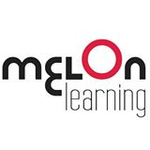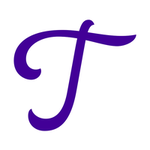Description

Engrade

Melon LMS
Comprehensive Overview: Engrade vs Melon LMS
Engrade and Melon LMS are two distinct Learning Management Systems (LMS) that cater to the education and corporate training sectors. Here's a comprehensive overview of each, including their primary functions, target markets, market presence, and differentiating factors:
Engrade
a) Primary Functions and Target Markets:
-
Primary Functions:
- Gradebook Management: Engrade primarily started as an online gradebook, allowing educators to manage and track student grades efficiently.
- Assignment and Assessment Tools: It offers tools for assigning classwork and assessments, providing feedback, and tracking student progress.
- Communication Tools: Includes communication features for teachers, students, and parents to interact and stay informed about academic performance.
- Data Analytics: Offers analytics for tracking student performance metrics and identifying areas where students may need additional support.
- Integration: Can integrate with various educational tools and resources, enhancing its utility in managing classroom activities.
-
Target Markets:
- Primarily targets K-12 educational institutions looking for efficient tools to manage classroom activities and student performance.
- Some usage in post-secondary education environments that require straightforward grade management and student tracking.
b) Market Share and User Base:
Engrade was acquired by McGraw-Hill Education in 2013, which expanded its reach and integration with McGraw-Hill's educational resources. Its market share is mainly within the K-12 sector and varies by region, largely depending on the integration within McGraw-Hill's suite of offerings.
c) Differentiating Factors:
- Integration with McGraw-Hill: The integration with McGraw-Hill's educational content is a significant advantage, offering educators access to a wide array of resources.
- Focus on K-12 Education: Tailored specifically for K-12 needs, with features designed to support classroom management.
- Simplified User Experience: Known for its user-friendly interface, making it accessible for teachers who may not be tech-savvy.
Melon LMS
a) Primary Functions and Target Markets:
-
Primary Functions:
- Course Management: Provides comprehensive tools for creating, managing, and delivering training programs.
- Content Delivery: Supports various content formats, including videos, PDFs, and interactive modules, to enrich the learning experience.
- Assessment and Reporting: Offers robust features for testing and reporting, allowing trainers and educators to gauge progress and comprehension.
- Customization: Highly customizable to fit the specific needs of different organizations.
- Mobile Accessibility: Designed for use on mobile devices, supporting on-the-go learning.
-
Target Markets:
- Primarily targets corporate training environments, focusing on businesses seeking efficient training and professional development tools.
- Also used by educational institutions seeking more flexible and customizable LMS solutions.
b) Market Share and User Base:
Melon LMS is part of a competitive market of LMS products aimed at corporate training. Its market share is influenced by factors such as ease of use, customization capabilities, and integration features. The user base predominantly consists of corporate clients and adult learning institutions.
c) Key Differentiating Factors:
- Customizability: Melon LMS provides significant customization capabilities, allowing organizations to tailor the system to their specific training needs.
- Corporate Focus: While adaptable for educational institutions, its primary design and feature set cater to corporate training environments.
- Content Flexibility: Supports a wide array of content formats and delivery methods, which is ideal for dynamic and interactive training sessions.
Comparison:
-
Market Share and Reach: Engrade has a specific stronghold in the K-12 educational space, thanks in part to integration with McGraw-Hill, while Melon LMS is more embedded in corporate training.
-
User Interface and Experience: Engrade is known for its simplicity and ease of use for educators, whereas Melon LMS offers more flexibility and customization, catering to the varied needs of businesses.
-
Primary Audience: Engrade is primarily for educational institutions in the K-12 space, whereas Melon LMS is highly centered on corporate training and professional development.
Overall, both systems serve distinct purposes and audiences, with Engrade leveraging educational resources and a focus on classroom dynamics, while Melon LMS prioritizes flexibility and comprehensive training solutions for businesses.
Contact Info

Year founded :
2004
+1 800-305-1367
Not Available
United States
http://www.linkedin.com/company/engrade

Year founded :
Not Available
Not Available
Not Available
Not Available
Not Available
Feature Similarity Breakdown: Engrade, Melon LMS
Engrade and Melon LMS are both learning management systems (LMS) designed to facilitate educational processes by providing platforms for managing, delivering, and tracking learning experiences. Below is a feature similarity breakdown for these two systems:
a) Core Features in Common
-
Gradebook Management:
- Both platforms offer comprehensive gradebook functionalities that allow educators to record, calculate, and analyze student performance across various assignments and assessments.
-
Assessment Tools:
- Engrade and Melon LMS provide tools for creating and administering quizzes, tests, and other forms of assessments. These tools often include features for automated grading and feedback.
-
Content Management:
- Both systems support the uploading and organizing of course materials such as documents, presentations, videos, and other multimedia resources.
-
Attendance Tracking:
- They include features to track student attendance, which can be crucial for monitoring participation and engagement.
-
Communication Tools:
- Communication features like messaging and discussion forums are present in both platforms, facilitating interaction between students and instructors.
-
Reporting and Analytics:
- Each system provides reporting tools that give insights into student progress, course completion rates, and other performance metrics.
-
Integration Capabilities:
- Both LMSs offer integration options with other educational tools and platforms, such as Google Classroom, Microsoft Teams, or external tools via APIs.
b) User Interface Comparison
-
Engrade:
- Engrade's user interface is typically straightforward and utilitarian, focusing on ease of use. The design is often simple with prominent navigational elements that make it easy for educators to access key features quickly.
-
Melon LMS:
- Melon LMS tends to have a more modern and visually appealing interface. It emphasizes user experience with a clean layout and interactive elements that guide users more intuitively through the platform.
c) Unique Features
-
Engrade:
- Integration with Other Educational Products: Engrade has traditionally been recognized for its ability to integrate with other products within the McGraw-Hill Education suite, providing a seamless experience for users who utilize multiple educational resources from the same provider.
-
Melon LMS:
- Gamification Elements: Melon LMS might offer gamification features, such as badges and leaderboards, to increase student engagement and motivation, which may not be as pronounced in Engrade.
- Customizable Learning Paths: It might provide more advanced options for creating personalized learning experiences, allowing instructors to tailor content and progression based on individual student needs.
To choose between these systems, educational institutions would consider not only the feature sets but also the specific needs of their instructors and students, as well as their long-term strategic objectives regarding learning and engagement practices.
Features

Not Available

Not Available
Best Fit Use Cases: Engrade, Melon LMS
Engrade and Melon LMS are both platforms in the education and learning management system space, but they cater to different needs and use cases. Here's an analysis of where each platform might be the best fit:
Engrade
a) Best Fit Use Cases for Engrade:
-
Primary and Secondary Education:
- Engrade is ideal for K-12 institutions looking to manage grades, attendance, and communication between teachers, students, and parents. It provides a student information system that caters specifically to school environments.
-
Institutions Needing Integrated Tools:
- Schools that need integrated tools for grading, assessments, and analytics will benefit from Engrade’s comprehensive suite. It helps teachers spend less time on administrative tasks and more on teaching.
-
District-wide Implementations:
- Large school districts aiming for a unified approach to student data management would find Engrade useful, as it offers district-level analytics and reporting tools.
-
Stakeholder Communication:
- Schools or districts where communication between students, teachers, and parents is critical can leverage Engrade’s tools to streamline interactions and stay informed on student progress.
Melon LMS
b) Preferred Scenarios for Melon LMS:
-
Corporate Training and Development:
- Melon LMS is well-suited for businesses focused on employee training and skill development. It can handle compliance training, onboarding processes, and continuous education for employees.
-
Customizable Learning Paths:
- Companies or institutions needing highly customizable learning paths and experiences may prefer Melon LMS, as it offers flexibility in designing courses and assessments.
-
International or Scalable Deployments:
- Organizations looking for a scalable system that can accommodate international teams and diverse training needs will benefit from Melon LMS’s capabilities in supporting multiple languages and formats.
-
E-learning Providers:
- Businesses that specialize in online courses and e-learning packages can leverage Melon LMS's features to deliver engaging content effectively across various platforms.
d) Catering to Different Industry Verticals or Company Sizes:
-
Industry Verticals:
- Engrade primarily targets the education sector, specifically K-12 schools, due to its focus on grading, attendance, and school communication tools.
- Melon LMS is more versatile across various industry verticals, including corporate training, healthcare, hospitality, and any industry requiring robust training and development solutions.
-
Company Sizes:
- Engrade is typically more suitable for small to medium-sized schools or large school districts wanting a centralized system to manage educational data.
- Melon LMS is well-suited for medium to large enterprises that require scalable solutions for training a diverse and often widespread workforce. Its flexibility and customizability make it suitable for organizations with complex training needs.
Overall, Engrade and Melon LMS serve distinct purposes within the education and training ecosystems, with Engrade focusing on K-12 educational environments and Melon LMS offering broader applications in corporate and professional training scenarios.
Pricing

Pricing Not Available

Pricing Not Available
Metrics History
Metrics History
Comparing teamSize across companies
Conclusion & Final Verdict: Engrade vs Melon LMS
When evaluating Engrade and Melon LMS, it's important to consider the strengths and weaknesses of each platform, as well as what specific needs they address. Here's a conclusion addressing the overall value, pros and cons, and recommendations for users:
a) Considering all factors, which product offers the best overall value?
Melon LMS appears to offer the best overall value for institutions or organizations seeking comprehensive learning management capabilities. Its robust feature set, user-friendly interface, and scalability make it versatile for various educational settings and corporate needs. While Engrade is effective primarily in K-12 settings with a focus on grade management and student performance tracking, Melon LMS provides broader functionality that supports extensive training programs, course management, and integration capabilities.
b) Pros and Cons of Choosing Each Product
Engrade
-
Pros:
- Primarily designed for K-12 institutions, making it highly suitable for schools.
- Strong grading and assessment tools that simplify tracking student performance.
- Simple user interface that is easy for teachers and students to navigate.
-
Cons:
- Limited features for higher education or corporate training environments.
- May lack advanced integrations and customization options that growing institutions might need.
- Users looking for robust analytics and reporting may find it lacking.
Melon LMS
-
Pros:
- Offers a comprehensive suite of features for course creation, management, and delivery.
- Scalable platform suitable for corporate training, higher education, and other sectors.
- Extensive integration options and customization capabilities.
- Strong support for multimedia content and e-learning modules.
-
Cons:
- Could be more complex to set up initially compared to simpler platforms.
- May present a steeper learning curve for users unfamiliar with advanced LMS functionalities.
- Potentially higher cost depending on the feature set and scale of deployment.
c) Specific Recommendations for Users
-
K-12 Schools: If your primary need involves managing grades, attendance, and communication within a school setting, Engrade offers a specialized toolset that aligns well with these requirements. It's a cost-effective choice for straightforward school management.
-
Corporate Training/Educational Institutions: Melon LMS is recommended for those who need a versatile, scalable platform capable of supporting extensive e-learning and training programs. It provides value through its diverse features and ability to integrate with other systems.
-
Seek Clarity on Needs: Users should clearly define their key requirements, such as grade management versus comprehensive learning delivery, before making a choice. It’s essential to identify whether the focus is on academic settings or broader training applications.
-
Consider Future Growth: If potential growth or scalability is a consideration, Melon LMS is likely to meet long-term needs better, especially in environments where training or educational programs might evolve significantly.
Ultimately, the decision should be based on the specific contexts and needs of the users, ensuring that the selected platform supports both current operations and future growth.
Add to compare
Add similar companies



